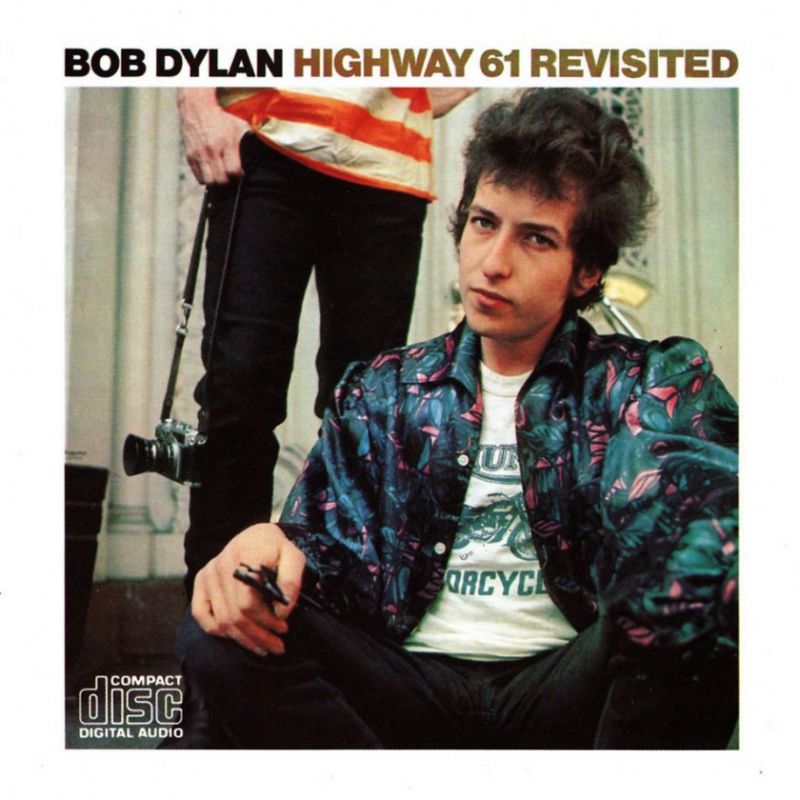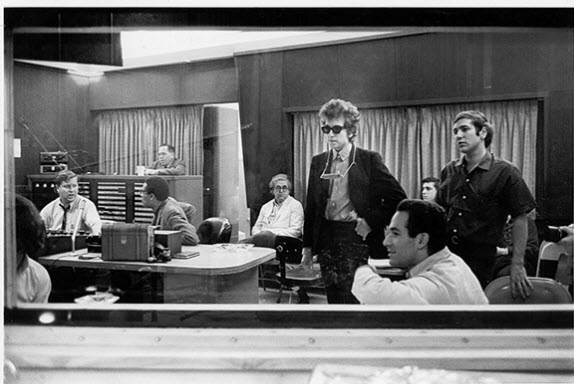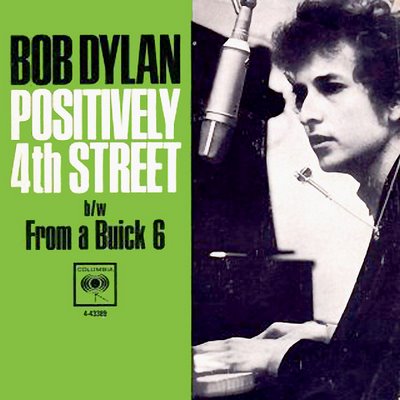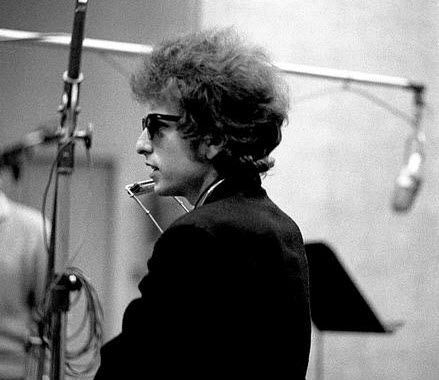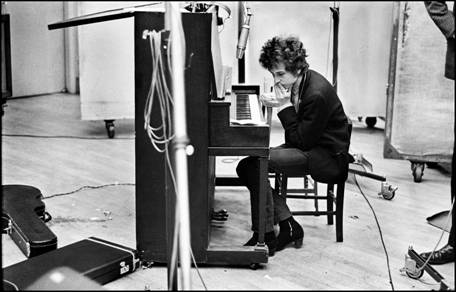July 29: Bob Dylan: The third recording session for Highway 61 Revisited in 1965 (read more)
|
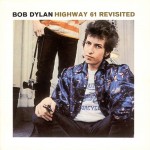 |
| On July 29, 1966, Bob Dylan crashed his 500cc Triumph Tiger 100 motorcycle on a road near his home in Woodstock, New York, and was thrown to the ground. Though the extent of his injuries was never fully disclosed, Dylan said that he broke several vertebrae in his neck. Mystery still surrounds the circumstances of the accident since no ambulance was called to the scene and Dylan was not hospitalized. Dylan’s biographers have written that the crash offered Dylan the much-needed chance to escape from the pressures that had built up around him. Dylan confirmed this interpretation of the crash when he stated in his autobiography, “I had been in a motorcycle accident and I’d been hurt, but I recovered. Truth was that I wanted to get out of the rat race.” In the wake of his accident, Dylan withdrew from the public and, apart from a few select appearances, did not tour again for almost eight years. | 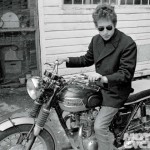 |
| Ina Anita Carter (March 31, 1933 – July 29, 1999), the youngest daughter of Ezra and Mother Maybelle Carter, was a versatile American singer who experimented with several different types of music and played upright bass with her sisters Helen Carter and June Carter Cash as The Carter Sisters. The trio joined the Grand Ole Opry radio show in 1950 (Anita was 17 years old at the time), opened shows for Elvis Presley, and joined The Johnny Cash Show in 1971. As a solo artist, and with her family, Carter recorded for a number of labels including RCA Victor, Cadence, Columbia, Audiograph, United Artists, Liberty and Capitol. | 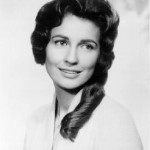 |
| Vivienne Patricia “Patti” Scialfa, born July 29, 1953, is an American singer-songwriter and guitarist. She is married to Bruce Springsteen and they have three children. |  |
| Geddy Lee Weinrib, OC (born Gary Lee Weinrib; July 29, 1953), better known as Geddy Lee, is a Canadian musician, best known as the lead vocalist, bassist, and keyboardist for the Canadian rock group Rush. Lee joined what would become Rush in September 1968, at the request of his childhood friend Alex Lifeson, replacing original bassist and frontman Jeff Jones. |  |
Spotify Playlist – July 29 |
|
Tag Archives: Anita Carter
Today: Bob Dylan – The third recording session for Highway 61 Revisited in 1965 – 48 years ago
“I never wanted to write topical songs,…. Have you heard my last two records, Bringing It All Back Home and Highway 61? It’s all there. That’s the real Dylan.”
~Bob Dylan (to Frances Taylor – Aug 1965)“If you had to sum up Highway 61 Revisited in a single sentence, suffice it to say that it is the album that invented attitude and raised it to an art form. Just take a look at the cover. Nobody from Johnny Rotten to Eminem has done it better to this day.
~Nigel Williamson (The Rough Guide To Bob Dylan)
Studio A
Columbia Recording Studios
New York City, New York
29 July 1965
The 3rd Highway 61 Revisited session, produced by Bob Johnston
Songs:
- It Takes A Lot To Laugh, It Takes A Train To Cry
- It Takes A Lot To Laugh, It Takes A Train To Cry
- It Takes A Lot To Laugh, It Takes A Train To Cry
- Tombstone Blues
- Tombstone Blues
- Tombstone Blues
- Tombstone Blues
- Tombstone Blues
- Tombstone Blues
- Tombstone Blues
- Tombstone Blues
- Tombstone Blues
(recorded 10 am – 1 pm)
released 30 Aug 2005 – The Bootleg Series Vol 7. No Direction Home: The Soundtrack
- Tombstone Blues
- Tombstone Blues
(recorded 10 am – 1 pm)
released 30 Aug 1965 – Highway 61 Revisited
–
If Salvador Dali or Luis Bunuel had picked up a Fender Strat to head a blues band, they might have come up with something like “Tombstone Blues.”
~Bill Janovitz (allmusic.com)
— - It Takes A Lot To Laugh, It Takes A Train To Cry
- It Takes A Lot To Laugh, It Takes A Train To Cry
- It Takes A Lot To Laugh, It Takes A Train To Cry
- It Takes A Lot To Laugh, It Takes A Train To Cry
(recorded 2:30 – 5:30 pm)
released 30 Aug 1965 – Highway 61 Revisited
–
- Positively 4th Street
- Positively 4th Street
- Positively 4th Street
- Positively 4th Street
- Positively 4th Street
- Positively 4th Street
- Positively 4th Street
- Positively 4th Street
- Positively 4th Street
- Positively 4th Street
(recorded 2:30 – 5:30 pm)
released 7 Sept 1965 as a single
–
Musicians:
- Bob Dylan (guitar, piano, harmonica, vocal)
- 1-14 Mike Bloomfield (guitar), Paul Griffin (piano), Bobby Gregg (drums), Joseph Machao Jr. (bass), Al Kooper (organ)
- 15-28 Mike Bloomfield (guitar), Frank Owens (piano), Bobby Gregg (drums), Russ Savakus (bass), Al Kooper (organ)
Related articles @ JV:
- Bob Dylan recording sessions
– - Johannasvisions @ Facebook
- Bob Dylan top 200 songs
- Bob Dylan videos @ Johannasvisions.com
- Bob Dylan albums @ Johannasvisions.com
- Bob Dylan concerts @ Johannasvisions.com
References:
- Still On The Road – Olof Björner
—
Other July 29:
Today: Johnny Cash recorded Ring of Fire in 1963
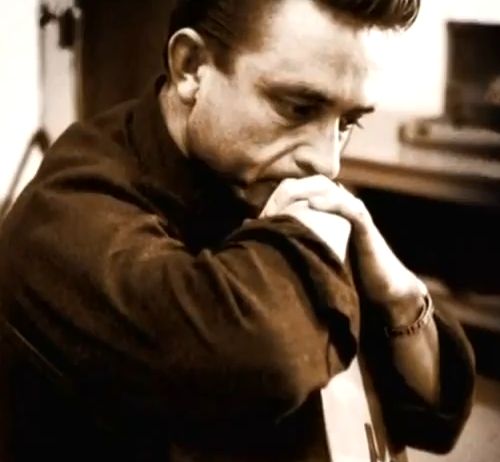
“The song is about the transformative power of love and that’s what it has always meant to me and that’s what it will always mean to the Cash children.”
– Rosanne Cash
“Ring of Fire” or “The Ring of Fire” is a country music song popularized by Johnny Cash and co-written by June Carter Cash (wife of Johnny Cash) and Merle Kilgore. The single appears on Cash’s 1963 album, Ring of Fire: The Best of Johnny Cash. The song was originally recorded by June’s sister, Anita Carter, on her Mercury Records album Folk Songs Old and New (1963) as “(Love’s) Ring of Fire”.
Anita Carter – Love’s Ring of Fire:
According to the Rolling Stone magazine’s Top 500 Songs, June Carter wrote this song while driving around aimlessly one night, worried about Cash’s wild man ways – and aware that she couldn’t resist him.
“There is no way to be in that kind of hell, no way to extinguish a flame that burns, burns, burns”
Not long after hearing June’s sister Anita’s take on the song, Cash had a dream that he was singing it with Mariachi horns. Cash’s version became one of his biggest hits, and his marriage to June 4 years later helped save his life. The song was maybe inspired by the poem Love’s Ring Of Fire, and it was originally recorded in a more folksy manner by June Carter’s sister, Anita, as “Love’s Fiery Ring.”/”Love’s Ring of Fire”. Cash held back on his single to give her version a chance to chart.
Continue reading Today: Johnny Cash recorded Ring of Fire in 1963
Today: Bob Dylan recorded master version of “Positively 4th Street” in 1965 – 47 years ago
On July 29, 1965 Dylan undertook his 3rd Highway 61 Revisited session, produced by Bob Johnston.
Location: Studio A, Columbia Recording Studios – NYC
The day left us with master versions of Positively 4th Street, Tombstone Blues & It Takes A Lot To Laugh, It Takes A Train To Cry.
Positively 4th Street ranks as no. 14 on my list of Dylans 200 best songs (Tombstone is 72 & It Takes a lot is 76).
Musicians:
Bob Dylan (guitar, piano, harmonica, vocal).
Mike Bloomfield (guitar), Frank Owens (piano), Bobby Gregg (drums), Russ Savakus (bass), Al Kooper (organ).
From Wikipedia:
“Positively 4th Street” is a song written and performed by Bob Dylan, first recorded by Dylan in New York City on July 29, 1965. It was released as a single by Columbia Records on September 7, 1965, ….. … Rolling Stone magazine ranked the song as #203 in their 500 Greatest Songs of All Time list.
The song was released between the albums Highway 61 Revisited and Blonde On Blonde, as the follow-up to Dylan’s hit single “Like a Rolling Stone“, but wasn’t included on either LP. The song’s title does not appear anywhere in the lyrics and there has been much debate over the years as to the significance or what individual the song concerns. Dylan once lived on 4th Street in Manhattan.
In studio summer 1965 – photo by Don Hunstein:
—
Bob Dylan also recorded “Catfish” on this day in 1975.
Location: Studio E – Columbia Recording Studios, NYC
Wikipedia:
Catfish is a song written Bob Dylan and Jacques Levy. It was originally recorded for Dylan’s 1976 album Desire but was released onThe Bootleg Series Volumes 1–3 (Rare & Unreleased) 1961–1991. “Catfish” was a tribute to future Baseball Hall of Fame pitcher Jim Hunter (better known as Catfish Hunter). Joe Cocker covered the song and included it on his 1976 album “Stingray,” and Kinky Friedman released a live version on his “Lasso from El Paso” album.
Album of the day:
Other July 29:

